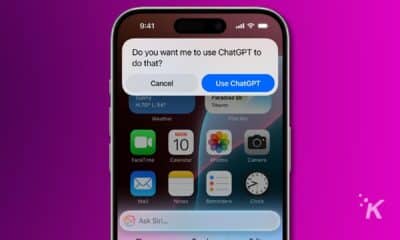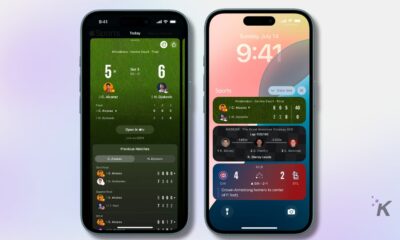Apple
President Biden has signed the TikTok ban. Now what?
President Biden has signed a law requiring TikTok’s parent company, ByteDance, to sell the video-sharing service to a US company or face removal from US app stores, sparking a bipartisan effort to ban the app across the country.

Just a heads up, if you buy something through our links, we may get a small share of the sale. It’s one of the ways we keep the lights on here. Click here for more.
President Biden has signed a law requiring
The measure comes into law less than two weeks after Congress rolled the TikTok ban into an appropriations bill that set aside financial funding and other aid for military conflicts in Ukraine and Israel.
Incorporating the
He did just that on Wednesday, putting ByteDance on notice that they had about a year to find an American company willing to buy TikTok.

If ByteDance can’t find a suitor in time or simply decides not to comply with the law, app stores in the United States will not be allowed to offer
American lawmakers on both sides of the aisle paint
For its part, ByteDance says it safeguards the personal data of its users and doesn’t share that information with Chinese government officials.
However, there have been instances where some ByteDance and
The TikTok situation is one of the few that has managed to unite federal lawmakers on both sides of the aisle
The movement to ban
The ban on
TikTok immediately filed a legal challenge to Trump’s executive order. The lawsuit was ultimately dismissed after President Biden rescinded Trump’s executive order the following year.
But the heat on
President Biden has taken several actions independently, issuing orders that prevent
Last year, the Pentagon issued an order that banned
Some local governments have also moved to ban
The law proposed financial fines against American technology companies that allowed
The law signed by President Biden on Wednesday is the biggest attempt to ban
ByteDance is unlikely to comply with the law. Instead, company officials signaled their intention to sue the Biden Administration and request a preliminary injunction preventing the law from taking effect — similar to its actions in Montana.
Federal courts do not move quickly, and if ByteDance does sue — as it says it will — it could take several years before the dust settles on the matter.
For now, nothing has changed — the app is still readily available in American app stores, and none of the major technology companies have signaled their intention to withdraw
Will you continue to use
Editors’ Recommendations:
- Teens are tuned in to
TikTok and YouTube ‘almost constantly’ - TikTok is giving free money away to anyone who wants it
- Facebook hits ‘copy-paste’ on
TikTok ’s vertical video format - TikTok experiments with 15-minute videos






























